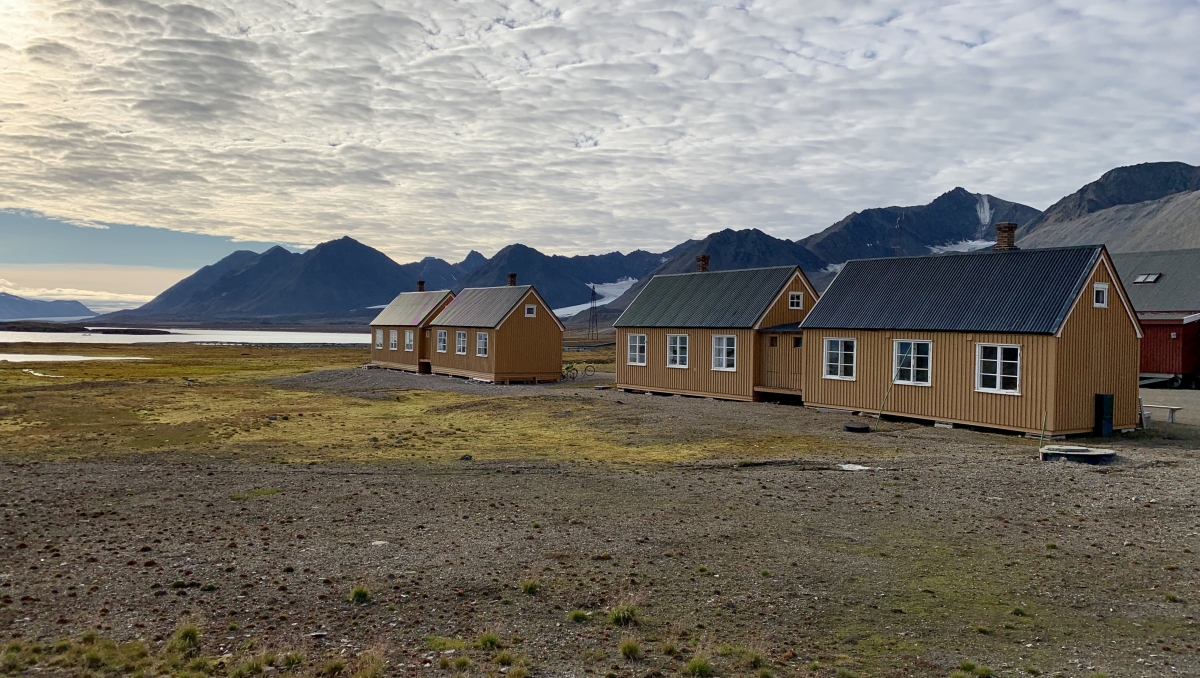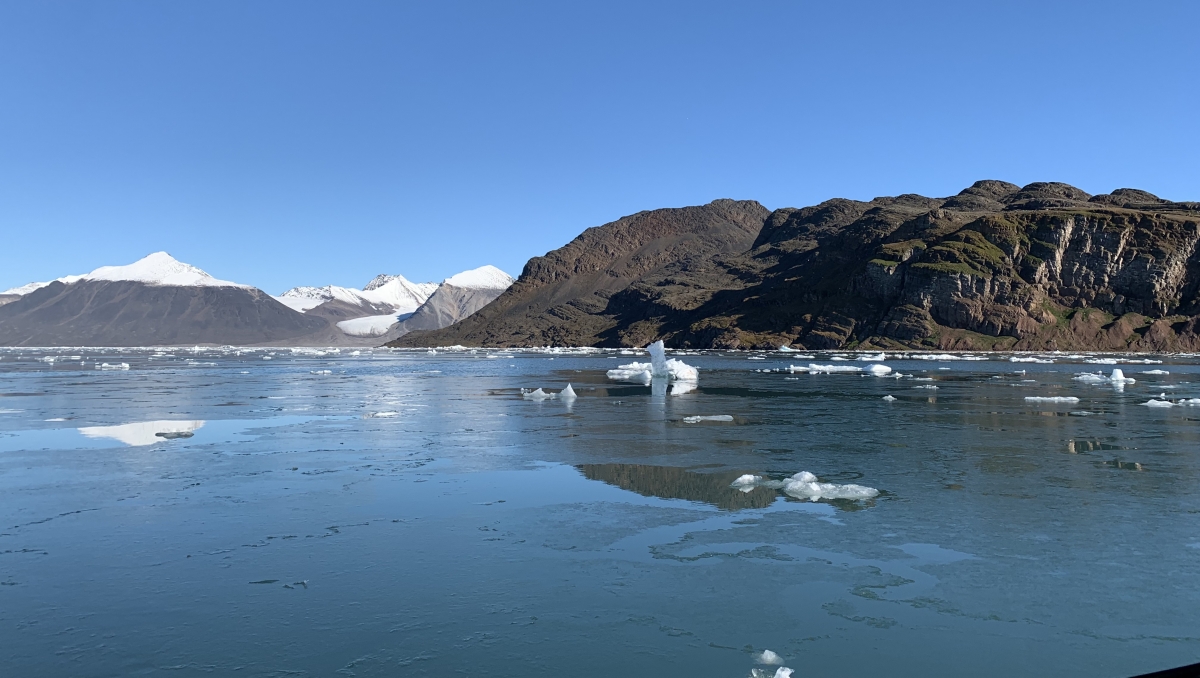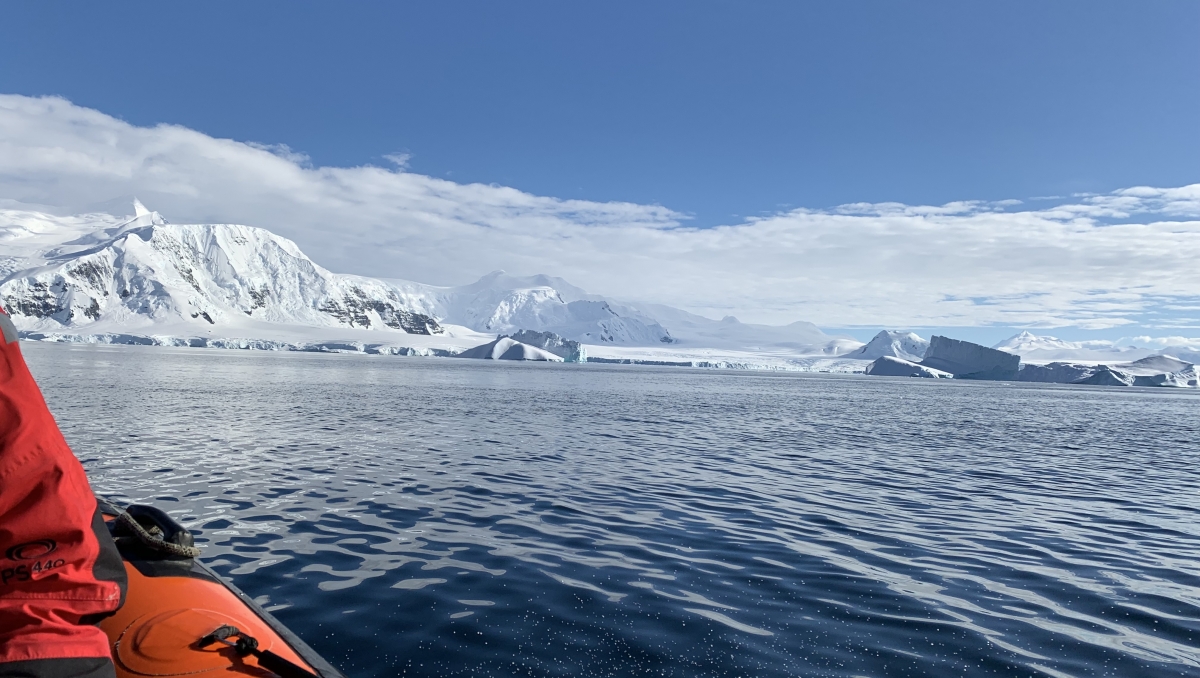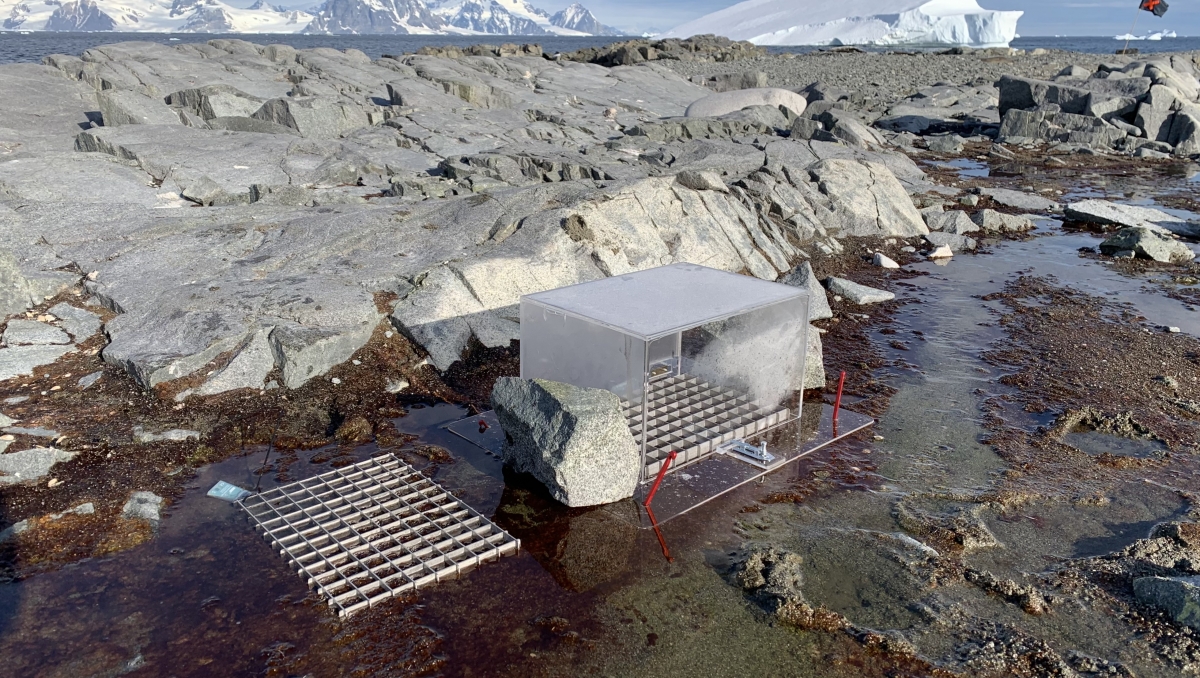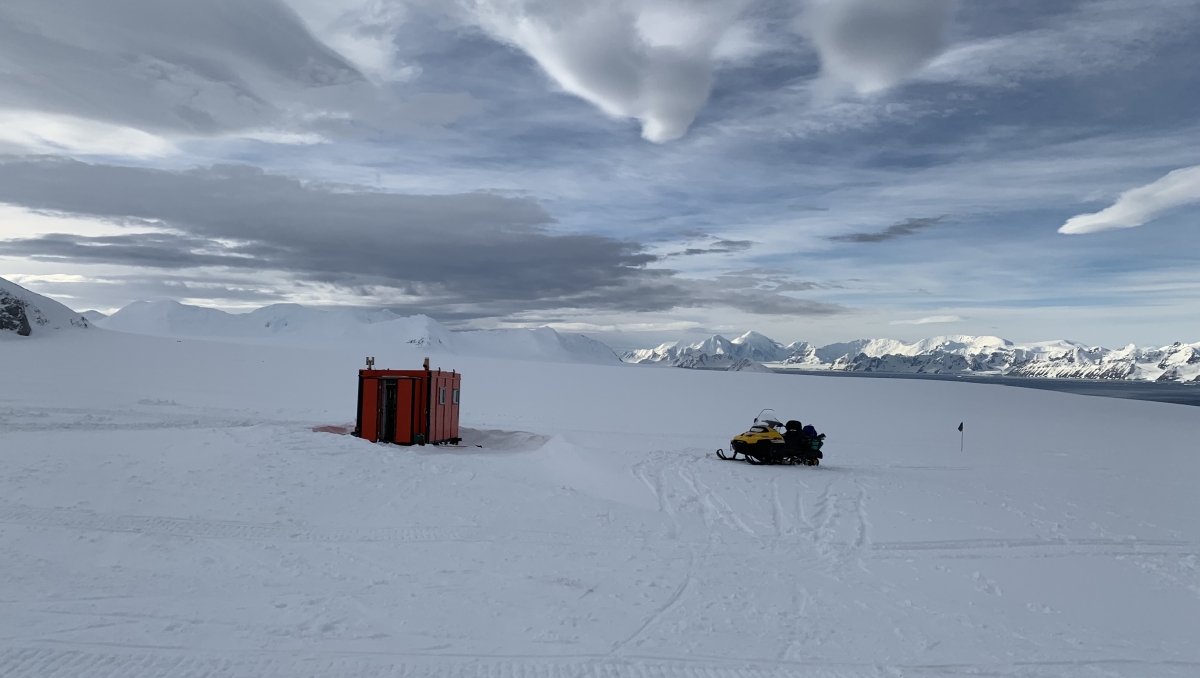Research beyond the Arctic Circle
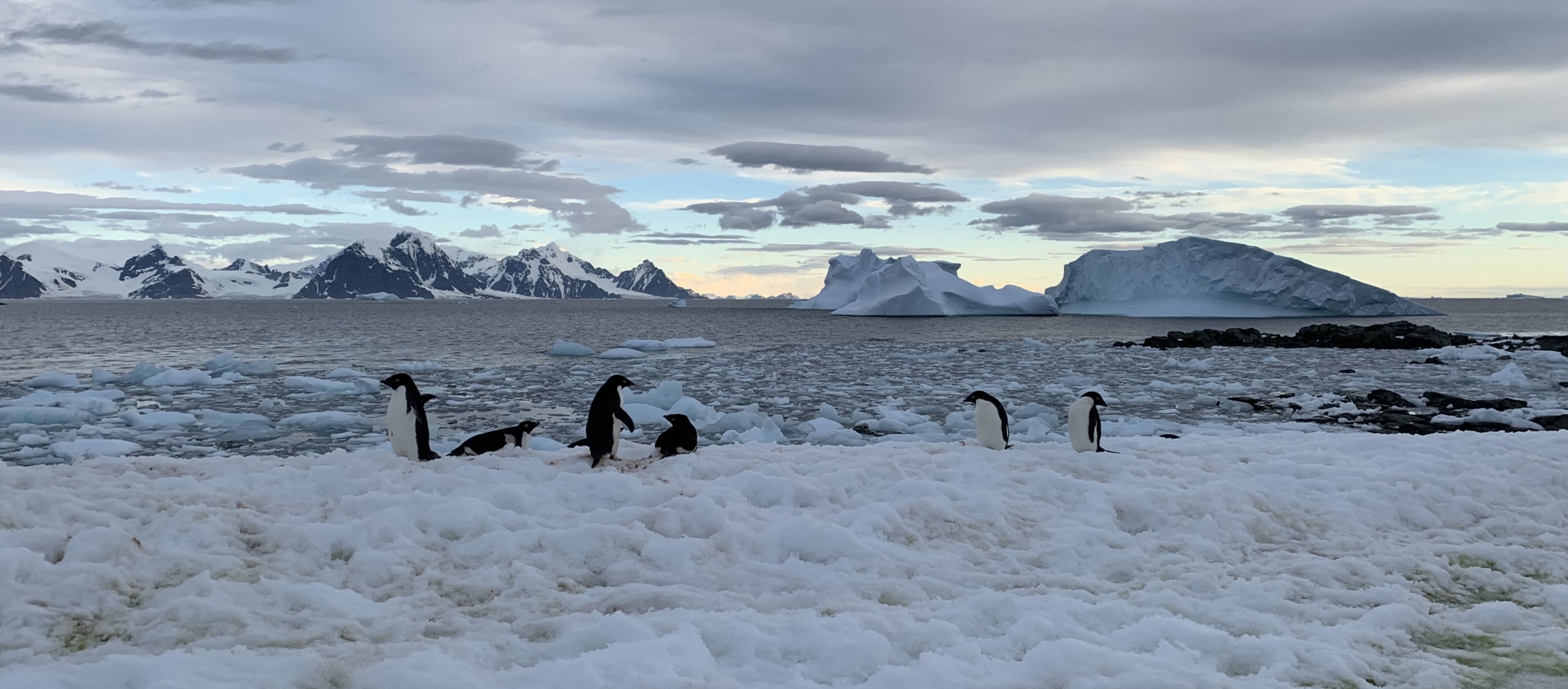
Eva Riehle remembers 18 August 2021 very well, since that was the date her project was approved to study cyanobacteria and their natural toxins. Together with her doctoral supervisor, Daniel Dietrich, she plans to investigate how polar terrestrial ecosystems, in which cyanobacteria play an important role, are affected by climate change. Her dissertation took a new geographical direction thanks to funding from the German Research Foundation's (DFG) priority programme "Antarctic Research with Comparative Investigations in Arctic Ice Areas". The following year was filled with application forms and preparations for conducting research at the German-French research station on Svalbard that is administered by the Alfred Wegner Institute (AWI) in Bremerhaven.
She also had to prepare for risks such as polar bears, that have less and less food available due to climate change. Emaciated animals can attack people, which is why everyone is required to always carry a weapon for protection outside the station: a rifle as well as a flare gun. The young biologist had to learn to use these weapons at the AWI. "I felt as if I had traversed Germany multiple times before I was able to head off to the Arctic". The weapons training was the final hurdle to clear before heading off to Svalbard in August 2022.
Off to the Arctic
The AWIPEV research base in Ny-Ålesund, a joint station of the AWI and the French polar research institute Paul-Émile Victor (IPEV), is located in a small town dedicated to polar research, right next to the water of Kongsfjorden. In the background, mountains frame the skyline. Every morning, Eva Riehle sets out after breakfast for a four to five hour hike to collect samples of cyanobacteria and only returns in the evening. "Before leaving the station, you have to log your activities in an online booking system stating when you're leaving, how long you'll be gone, which route you will be taking and what you'll be doing", she says and adds: "There is a lot you have to carry with you: a rifle and its ammunition, a flare gun and its ammunition, a VHF radio and a satellite phone, because the VHF has no reception as soon as you go behind a mountain. Your backpack can easily weigh 10 kilograms".
The researchers are only permitted to leave the station in pairs – one person can work while the other is on bear watch. "At first, I thought: That's easy, since polar bears are white and easy to spot. However, they are very well camouflaged in their arctic surroundings, and it's actually really difficult to spot anything there", Eva Riehle says. At the same time, she enjoys working in the untouched nature, because she always discovers something new: "Sometimes we took a little rubber boat across the fjord – it's really a special experience to go between the huge ice floes there in a rubber boat".
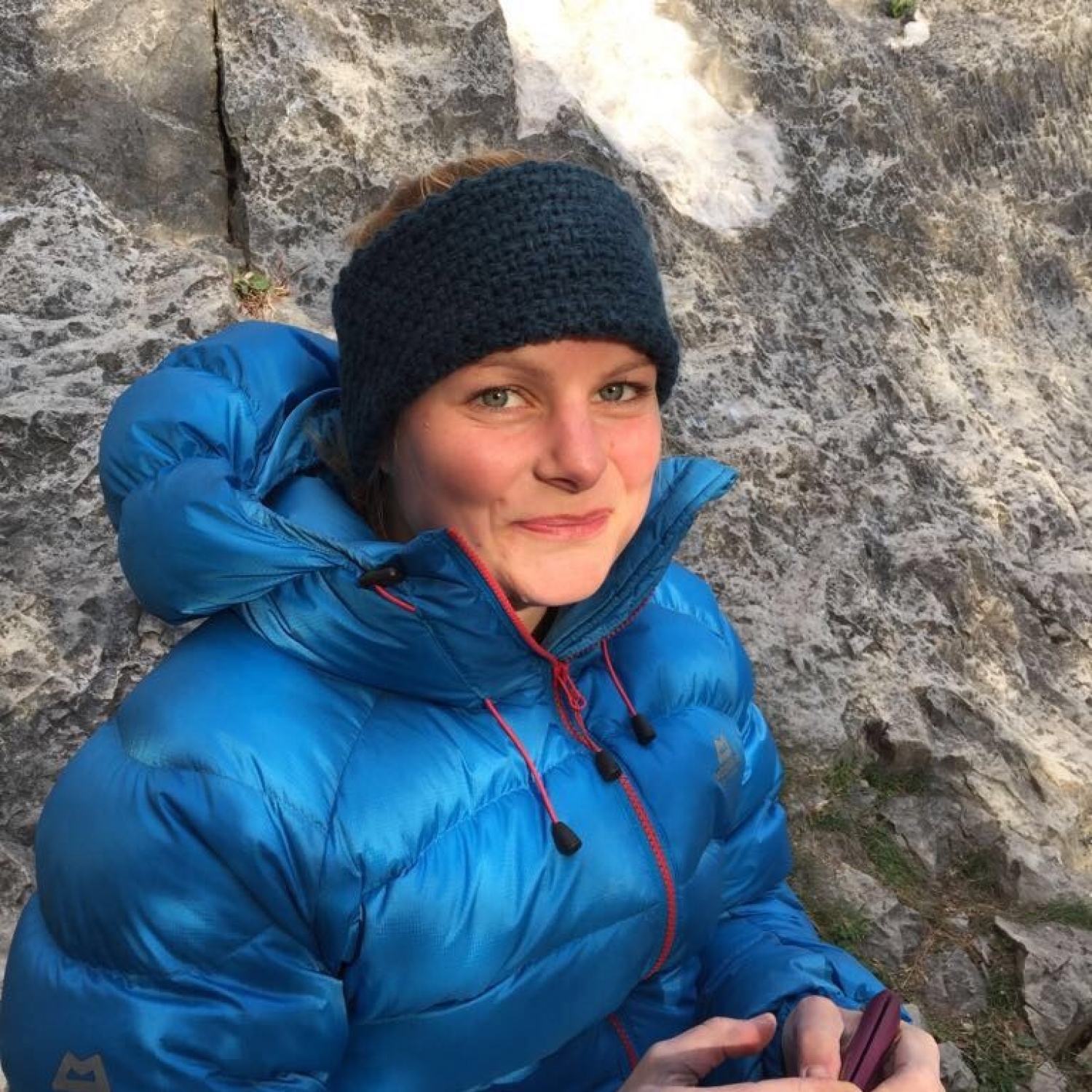
"We are responsible for each other. All day, you have to be focused and alert. You can't just take a break, rest on a rock and eat a sandwich. By evening, you are utterly exhausted."
Eva Riehle
Once, Eva Riehle almost met a polar bear. One morning around 7:00, she headed across the station for breakfast. Moments later, she sees a note on the whiteboard in the breakfast room: Polar bear sighting this morning, 7:00, behind the power plant. "I felt sick to my stomach. Just 400 metres from where the polar bear had been swimming in the lagoon behind the power plant, I was trotting past the other side of the plant."
After returning to Germany, Eva Riehle began preparations for research in Antarctica, starting in January 2023 on the British Rothera Research Station (Adelaide Island). There are plenty of details to coordinate with the authorities in Great Britain and Germany. And this trip has another dimension altogether: There are 150 people living and working on station, which is much more isolated geographically. The equipment was shipped from England ahead of time, in September 2022. To ensure the safety of everyone working on site, the British Antarctic Survey (BAS), that manages the station, provides researchers with plenty of expedition clothing. Riehle emphasizes: "If you don't come prepared for this stay, you can forget about your project. And you definitely don’t want to get sick while you're there. Even when the weather is good, it takes at least a day to reach the nearest hospital".
Latitude 67°34'8"S, Longitude 68°7'29"W
Rothera Research Station on the Antarctic peninsula is comprised of several large buildings and a runway for planes. The everyday work of staff on station – many technicians and skilled tradespeople, with researchers making up only a tenth of all staff – is more rigidly structured than Riehle experienced in Spitsbergen. The workday takes place in the time periods between the five meals served between 8:00 and 18:00 each day. In the evenings, there are often social activities, like a film or game night, a lecture, and, of course, sports.
Every morning at 8:30, there's a briefing for researchers in the lab: Who has what plans for the next few days? Which islands will boats be travelling to? What is the weather forecast like? And here, too, everyone is required to tag out of the system before leaving and travel in groups of at least two people. Eva Riehle and Daniel Dietrich, who is supporting the project in Antarctica, collect samples of cyanobacterial ecosystems at different locations. Back in Germany, the plan is to genetically analyze all the cyanobacteria species and other bacteria and microorganisms that live in the same ecosystem as cyanobacteria.
"As with almost all species, parasitism can occur in cyanobacteria, with parasitic fungi and viruses playing an important role in ecosystem functioning. We suspect that these parasites enhance the toxin production of the bacteria. And one of the things we are studying is whether this increases at higher temperatures."
Eva Riehle
For this purpose, the researchers use incubation chambers that look like small greenhouses and in which the temperature is about 2 degrees Celsius warmer than outside. The researchers set up the chambers near the station and take samples every three days.
In adverse weather conditions, this can be exhausting. The researchers can only move very slowly, and they have to fight against the wind and shout in order to be heard. Even under normal conditions, the temperatures here feel significantly colder than in the Arctic, Riehle thinks. You always have to wear gloves, even when the thermometer only shows -1 degree Celsius. And then there's the rapid change in weather. "One moment the weather is great, and then a storm suddenly starts up. Right away, you can have winds of 60 knots and sleet pelleting the side of your eyes", she says. "And it's really cold when there's a storm. That was challenging sometimes".
And the isolation? Riehle says this is not a problem when you're on station. There are plenty of people there, and all of them, including you, are extremely busy. But it's another story on the islands, where Dietrich and she are dropped off to collect samples. They always carry a lot of emergency equipment with them: additional food rations, a lamp, a sleeping bag. "If you radio in from one of these islands that you would like to be picked up and you don't get an answer right away, then you start to feel nervous. There is no way you would want to camp there for a few days! You suddenly feel very small", the doctoral researcher says.
The whole time, Eva Riehle is fully aware that she is very lucky to be able to work in Antarctica: "The nature there is so impressive. When you take a boat across the water to a tiny island in Antarctica or see a seal at sunset, it's so beautiful, you willingly endure the cold".
"Even though the research stays there were challenging and there were a lot of hurdles to manage, I would gladly like to go back."
Eva Riehle
However, she also feels the pressure of the fact that she cannot return to Antarctica, for example, in order to finish something left undone. The biologist is constantly checking her own plan: "Have I gotten everything done? Is everything documented as it should be? Did I include all the important parameters?" After a little less than six weeks, Dietrich and Riehle start their return journey while the cyanobacteria samples begin their voyage to England by ship. Eva Riehle wants to pick up the samples in person, since they have to be stored at -20 degrees Celsius. If they were to get stuck in customs, this would jeopardize the project results.
The samples and experiments in the incubation chambers are "only" the first practical step in the project. Most of the work will take place back in Germany, where the genetic analyses have to be conducted. This will require a lot of lab work and then plenty of bioinformatics. It is only afterwards that the scientific results of the project will become clear.
https://youtu.be/M_mx-88jE3Q?feature=shared
PhDiary: Since March 2023, doctoral researchers from various disciplines at the University of Konstanz have been providing weekly insights into their life with their doctoral thesis. This happens on the Instagram channel "PhDiary" @phdiary_unikonstanz.

